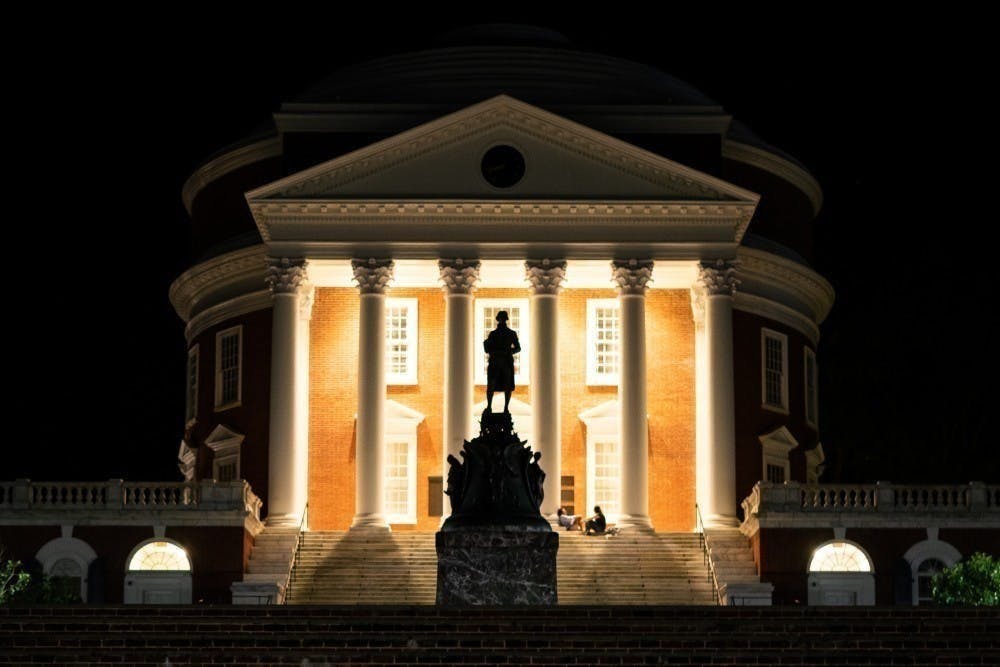The insinuations made in Opinion Columnist Klarke Mitchell’s recent piece are distasteful and damaging to the socio-cultural progress Black students at the University have been striving for. In this column, I will respond to some of the main arguments Mitchell makes, beginning with her title. The use of the term “cult” to describe the organization of Black students is inherently flawed. If anything, I could agree that there is a culture of Black victimhood on a level that affirms we have been victims of racism at the University. To claim that it is a “cult,” however, is absurd.
Mitchell claims two of my columns represent a forcefully communal narrative when it comes to the Black experience at the University. But I have to ask, where do I ever say there is one singular experience all Black students go through in these columns? Both cite real experiences by other Black students, as well as my own, which have been innumerable in the past three years. Moreover, I have to assume that Mitchell did not read my columns that she linked and made judgements based on my titles alone. I take great care to make sure there is no room left for misunderstanding following an inflammatory title. I also take great care to not make blanket statements that claim there is only one Black experience. Mitchell asserts that the legitimacy of the claims of physical attacks made on those who penned the letter following the Homer statue incident renders their arguments shaky. But even if those students have not personally been victims of physical attacks, the mere evidence of past violence — beyond the August 2017 invasion of Grounds by white supremacists — means that this could happen again.
If Mitchell thought the claims made in the open letter from Black students were false, she had plenty of opportunities to voice that. Black students have been organizing since early September, and Mitchell has had the opportunity to speak up about her opinions after the letter was written. Meetings were publicly promoted in forums she is a part of. Perhaps if she tried to participate and was shut down, I may have been able to understand why this was the angle and route she chose to voice these specific concerns, but that is simply not the case. Mitchell also states that all of the accomplishments of and resources available to Black students are overshadowed by the illustrations of negative experiences on Grounds. Mitchell is correct in saying that the “proof is unmistakably plain” that there is “unprecedented flourishing” of our people at the University. But that is thanks to us — and us only. If Mitchell thinks there is a constant overshadowing of the accomplishments of Black students and wants to uplift those things, she should not have chosen to publicly tear down the opinions of other Black students instead.
Admitting to being a victim does not paint someone in a bad light — it acknowledges the experiences of the individual. I do not understand why we cannot acknowledge that we have been victims and claim our powerful evolution simultaneously. It is true that we have been victimized at the University in multiple ways — colorism, cultural appropriation, tokenism, denial of racism, outright hate crimes and many more. It is also true that we have taken those attacks in stride and excelled at the University. These facts can coexist. As the main Black student who has been writing about my University experience for The Cavalier Daily for almost three years, I have focused on the negative parts because these experiences are even more overlooked than our accomplishments.
Mitchell takes the time to state her “familiarity with the conversations that have been occurring in Black forums” regarding the fears of some Black students following the Homer statue incident. If Mitchell’s participation in these forums — which are meant to serve as safe spaces for Black students — was more active than just “familiarity,” she would know that other students cleared up misunderstandings. It is tactless to violate that space by not only exposing the fears of students, but also purposefully omitting the presence of Black students who step up to balance out the space. Mitchell should also know that given the fact that a noose was placed on a prominent statue on Grounds, it is tone deaf and ignorant to assert that any fears were “exaggerated.” What is truly “antithetical to the fair society we all claim to want” is debasing the claims of Black students who have felt hostility from non-Black people on Grounds.
Though there is much more I would like to respond to within the content of Mitchell’s column, I can only fit so much content into one article. Mitchell approached an extremely nuanced topic in black and white while insinuating that because she has not noticed these experiences of racism on Grounds, they do not exist. One thing I would never do is speak out against the Black community in this public space — the University’s independent student newspaper — which is not curated for the Black community. It is true that I do not suffer perpetually at this University, but that is not because I do not experience racism — it is because I am resilient. Black students are free to think of themselves as whatever they like. I, however, will never deny that I have been a victim here at the University.
Aliyah D. White is an Opinion Columnist who writes about identity and culture for The Cavalier Daily. She can be reached at opinion@cavalierdaily.com.
The opinions expressed in this column are not necessarily those of The Cavalier Daily. Columns represent the views of the authors alone.







